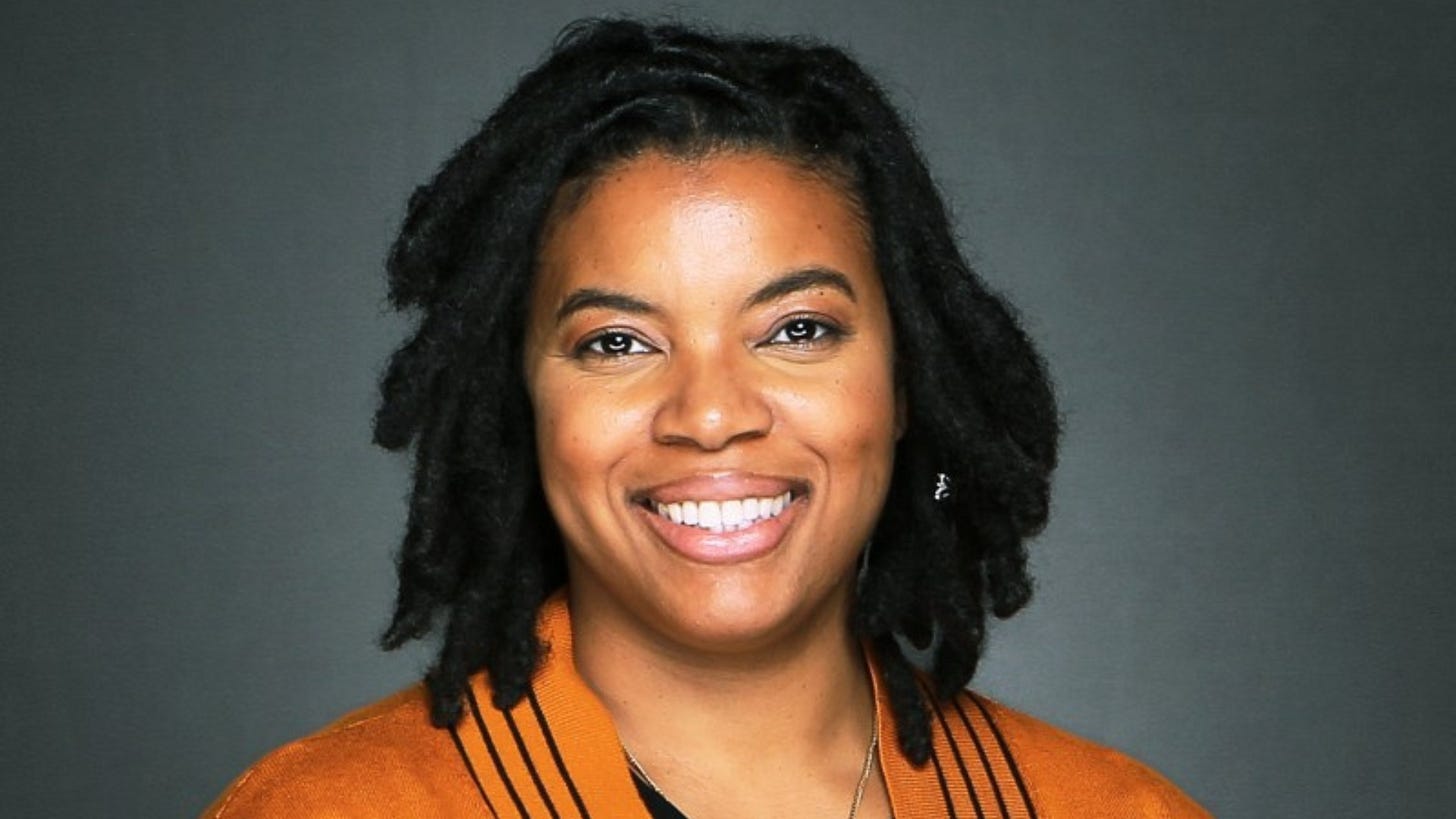SCOOP: Fisk names executive director of Darrell S. Freeman Sr. Center
The BIT president says the primary goal will be to grow the number of minority STEM businesses in Davidson County

It’s often difficult for successful CEOs to see how far they’ve come. But for Rod McDaniel, it's easy. He just has to look out the window.
Across the street from S3 Recycling’s 150,000 square-foot facility are the Robertson County Projects. The site reminds McDaniel of his childhood home, Tony Sudekem Apartments or as most in Nashville know it as “the southside projects”. His old stomping grounds are a stark contrast to his business’s balance sheet. S3, McDaniel proudly tells Tennbeat, is on track to reach eight figures in revenue this year.
The CEO credits his company’s success to hard work, a little bit of luck and his mentor, Darrell Freeman, the self-made millionaire who founded and sold Zycron — one of the largest minority-owned IT companies in Tennessee. Freeman began mentoring McDaniel in 2016. That same year, the black business icon invested in S3 and became Chairman of the Board. Since then, the company has made the Inc 5000 list three years in a row and grown to employ 40+ people — including one of Freeman’s sons, Nathan.
McDaniel was one of many individuals Freeman mentored. When the serial entrepreneur passed away unexpectedly last June, he and others wondered who would carry on the late leader’s legacy.
Today, they have their answer. Holly Rachel will be responsible for amplifying Freeman’s impact on minority entrepreneurs.
Fisk University’s Jens Frederiksen, selected the 35-year-old entrepreneur and non-profit president to serve as the founding Executive Director of the Darrell S. Freeman Center — a nonprofit innovation center and incubator that seeks to increase the number of minority-owned STEM (Science, Technology, Engineering and Math) businesses in Middle Tennessee.
Prior to his passing, Freeman was working closely alongside Mayor John Cooper to establish the incubator for underrepresented entrepreneurs in north Nashville. In January, it was announced the center would be named in his honor.
“Holly was a key member of the team that developed the vision for the Center and is the ideal candidate to lead this charge,” says Frederiksen, who serves as executive vice president of the university.
Rachel will work from the Roland Parrish Career Center, until the $10 million renovation of Fisk University’s Burrus Hall — which will house the Freeman Center — is complete. The century-old brick building that sits on the corner of 16th Ave N and Meharry Blvd was designed and built by, McKissak and McKissak, oldest black-owned architectural firm in the country. Preliminary construction has already begun. The building is expected to be completed early next fall.


A familiar face
Rachel is a familiar face in the entrepreneurial and tech ecosystems. The Vanderbilt alum arrived on the scene two years ago, when she and Fisk University Fellow Lena Winfree chartered the local chapter of Blacks in Technology — a global organization which aims to increase the number of African Americans in tech by expanding education opportunities.
She has made major strides in a short amount of time. As president, Rachel has grown the membership of the local chapter to 750 individuals — making it the fourth largest chapter in the U.S. She and Winfree secured seven figures of funding which they have used to host a total of 34 virtual events and 15 in-person events — ranging from workshops to 100+ person hackathons to job fairs.
BIT Nashville has launched seven education programs serving underrepresented Tennesseans ranging from elementary-age to executive level. Local Tek Thrive and the Healthcare Analytics Training are the most shining examples of BIT and Rachel’s impact:
Local Tek Thrive: BIT collaborated with Tennessee State University, to create and fund a year-long technology course for all 150 juniors at Republic High School — a north Nashville charter school whose student body is 91% non-white. Students who successfully complete the course will receive 6 credit hours of college credit from TSU — 3 hours for coding languages and 3 hours for app development — and have the opportunity to earn a Google Certification thanks to Nashville State.
Healthcare Data Training: BIT collaborated with Nashville Software School, HCA, Dell and Next Generation Health Analytics to provide a 12-week healthcare analytics course for employees at 15 Tennessee nonprofit hospitals.
“I’ve seen firsthand how hard Holly works and the impact she is capable of making,” says Winfree. “She is the ideal leader for the Freeman Center.”
Rachel says she will not be stepping away from her position with BIT.
“There is a lot of synergy between the two,” she says.
Bigger than black owned
Rachel is quick to point out that the Freeman Center goes beyond black-owned businesses. The incubator will break down barriers and expand opportunities for all underrepresented groups in the area — including all non-white ethnicities, women, veterans and LGBTQ+ individuals.
“Yes, we are housed at an HBCU, but this isn’t just for African Americans,” explains Rachel. “This is about all underrepresented groups.”
She says she will be reaching out to the all 11 minority chambers of commerce in Davidson County like the hispanic chamber and LGBTQ to better understand the unique needs of each of their communities.
A dearth of data
She plans to combine those conversations with data to design and develop the incubator’s programs, events and advocacy plan. However, she’ll have to gather that data first.
While nationally, the disparities in STEM owned businesses are well documented, there is a dearth of local data, according to Rachel. She requested data from the Nashville Chamber back in January, but learned the data does not exist.
“We’re going to develop an in-depth, annual, report on minorities in STEM,” Rachel says. “This report will be comprehensive and include everything from how many and what type of stem businesses there are to what type and how much funding minority founders are receiving in Middle Tennessee.”
Increasing access to capital
Despite an influx in interest in investing in minority groups, in 2020 after the tragic killing of George Floyd, funding remains a major obstacle for minority entrepreneurs.
In 2020, the year George Floyd was murdered, Black founders got a record 16% of angel investments, up from 0.5% in 2019. However, in 2021 that figure fell to just 2%, according to research from the Angel Capital Association, which represents individuals and groups of investors.
“We have to work collectively to ensure historically marginalized people have early access to entrepreneurship pathways and funding,” says Em Wilder, the program manager for Nashville Entrepreneur Center’s Twende Program — a 9-month business accelerator for black and hispanic business owners with less than $75,000 in revenue.
“Yes, starting a business requires hard work, education and mentorship but it also requires money,” says Rachel, who intends to cultivate an investor network that will, as she plainly puts it, “write the checks.”
In the past, many minorities turned to Freeman for funding.
“Darrell put his money where his mouth was,” says McDaniel.
“He was one of the only African Americans who not only had the money to invest but would invest ,” adds Derek “Mo” Moore, a co-founder of Slim and Husky’s Beeria, a popular Nashville pizza joint.
Freeman co-invested in the purchase of the fast-casual restaurant’s first building back in 2017. The serial entrepreneur went on to invest in three other commercial buildings with the eatery’s founding trio.
Setting out to scale
Freeman was also a mentor to Moore. Up until his death, the pair spoke two-to-three times a week. Many of those conversations, Moore says, were centered around scaling Slim and Husky’s, which has grown to an impressive 11 locations spread across Nashville, Memphis, Atlanta and Sacramento.
With Freeman out of the picture, Moore doesn’t have a clear point person or a program to help him navigate scaling.
“There are a lot of great organizations and programs in town that help minorities with 101,” says Moore. “...but there isn’t — at least that I know of — a program specifically for minority entrepreneurs trying to scale.”
Marcus Buggs seconds Moore’s sentiment. The former Buffalo Bills tight end and Vanderbilt alum runs two successful east Nashville businesses — Plane Jane, a craft cocktail bar, and Coneheads, a chicken and waffle concept. He hopes Rachel and the Freeman Center will consider creating a course for diverse founders, “trying to take their businesses to the next level.”
Both Buggs and Moore took advantage of entry-level entrepreneurial education programs when they first embarked on their journeys. Buggs participated in Corner to Corner’s 12-week course and Moore, Nashville Entrepreneurs Project In-Flight Program.
Shoes to fill
There might only be one person who can relate to Rachel: Brian Moyer. The AI Venture Studio founder understands what it means to run a large, tech non-profit and follow in Freeman’s footsteps. Moyer served as the CEO of the Greater Nashville Technology Council for six years and in December, he took Freeman’s seat on S3’s board.
His advice to Rachel?
“Carry on,” says Moyer. “All your experience has brought you to this moment, and it's clear that you are the ideal candidate for this position. You have a wonderful opportunity to follow in Darrell's footsteps and make a lasting, transformative impact on Nashville's minority startup community. As you step into this new role, remember to lead with the passion we have all seen. Your leadership will inspire others to follow.”





